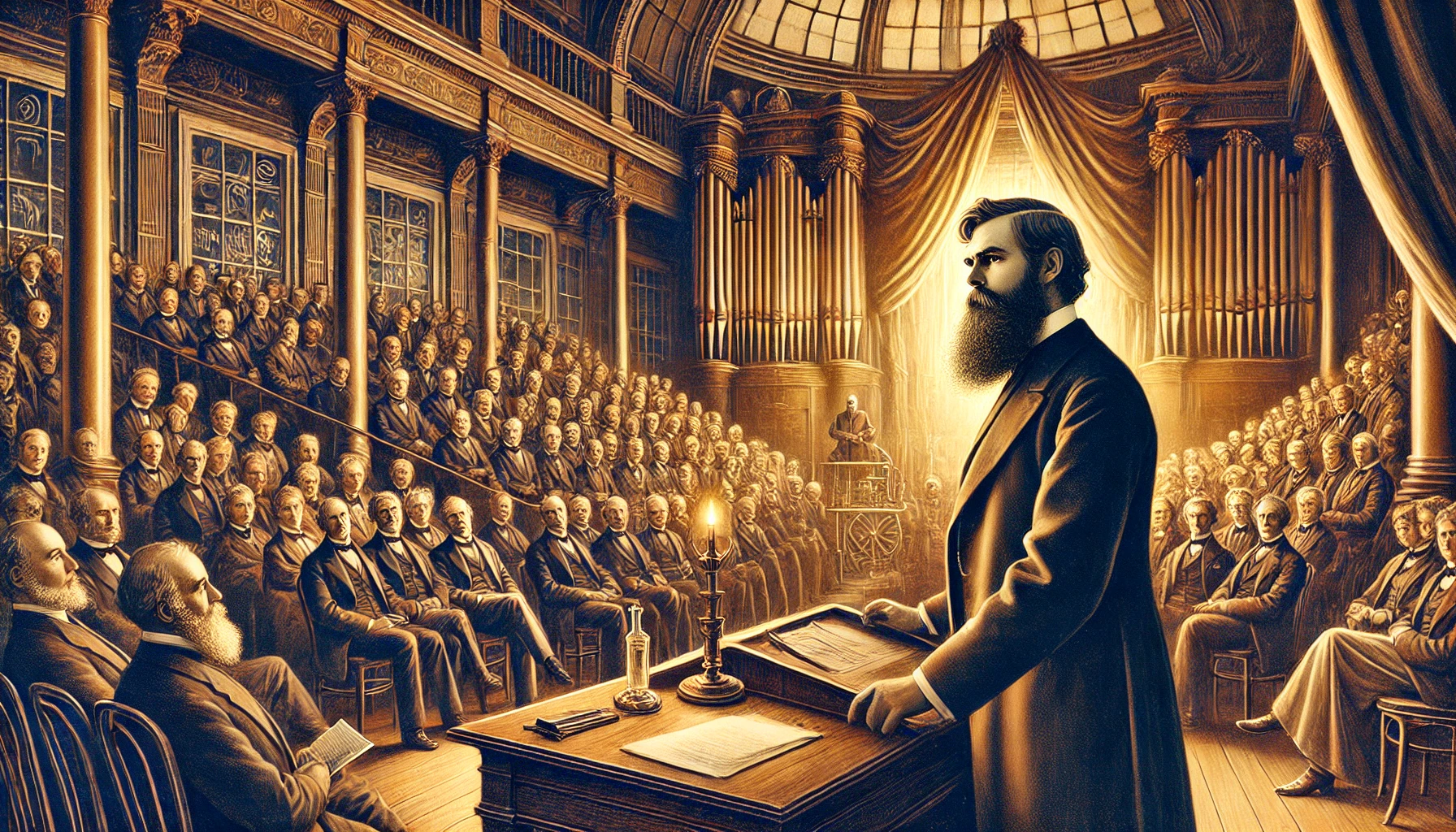Introduction:
Art of Fiction is a critical essay was written by Henry James. It was published in 1884 in Longman's Magazine. James has written the essay against the speech of Walter Besant on "Fiction as One of the Fine Arts", in the Royal Institution.
In this essay, James has proved that some of the given ideas by Walter Besant are useless and does not match in natural way for writing novel. In "Fiction as One of the Fine Arts", Besant argues mainly that the Fiction has no such things to be the Fine Art.
If we focus on the life of James, he was nominated for the nobel prize for three times in the early 1920s. Unfotunately, he did not win any nobel prize in his lifetime being selected. On the other hand, Walter Besant was a successful novelist in his age, he has published 'All Sorts and Conditions of Men' in 1882.
Speech of Besant:

However, in the speech of "Fiction as One of the Fine Arts", Besant outs that Fiction should be written with the exact ways. He more says that one must write from experience. Besant says about only the good novelist who should write the novel.
James is often confused on the speech of Mr. Besant, "Art is essentially selection, but it is a selection whose main care is to be typical, to be inclusive." Mr. Besant says that one must write from his experiences.
Mr. Besant's lecture is unfortunately the briefest passage -- his very cursory allusion to the "conscious moral purpose" of the novel. Mr. Besant has mostly focused on the heroic part of the character.
Reply of James:

The gentleman, Mr. Besant has given the importnace on the plot of the which is necessary. In reply, James protects against this restrictive rules of fiction, and he explores, "no good novel will ever proceed from a superficial mind.”
James has given pressure as "Fiction is an Art in every way worthy to be called the sister and the equal of the Arts of Painting, Sculpture, Music, and Poetry." He argues the rules of harmony, perspective, and proportion.
The term Fiction comes from the Latin "fictiō", “the act of making, fashioning, or molding." James says that a writer should write from his mind not from any greater experinece. In character, James often argues with Walter Besant, he says a character must be understandable and relatable, but rather than insisting on describing a character's facial hair, he emphasizes that there are countless ways to make a character believable to an audience.
James implies with the interesting part of a story, and Besant told to surpass a story in the moral laws. James wanted to write a story from the ease of mind, not from difficulty. He has made simple the rules of writing novel or a magical story.
James disagrees with Mr. Besant when he says that a writer must be talented. Mr. Besant has made an illustration. I have said that Mr. Besant mostly follow the rules of morality of a story.
Art of Fiction:
James shows in his "Art of Fiction", "Mr. Besant has set an excellent example in saying what he thinks, for his part, about the way in which fiction should be written, as well as about the way in which it should be published; for his view of the "art," carried on into an appendix, covers that too."
James says that the most jocular novel can often get the weight of honour, despite not having of moralness. Here, in the book, James tells us that novel is on higher than history.
James expresses that Mr. Besant mainly focuses on the professions like "music, poetry, painting, and architecture", which are the actual importantly valuable, but not fiction. In the Protestant Community, "art" is most necessary thing to follow which includes novels or story writing.
He has given reply to Besant by saying that "who read novels as an exercise in skipping would explain itself if it were to become articulate." He says that this type of following laws can make a compromise of good and bad novels are almost same.
James expresses that there are a lot of differences between a good and a bad novel, and he outs, "the bad is swept, with all the daubed canvases and spoiled marble, into some unvisited limbo or infinite rubbish-yard, beneath the back-windows of the world, and the good subsists and emits its light and stimulates our desire for perfection."
James criticized that Mr. Besant should keep mind of his not good feeling on novel. Someone can not have interest on something, that's quite common. James often agrees with Mr. Besant, "It is equally excellent and inconclusive to say that one must write from experience. Experience is never limited and it is never complete; it is an immense sensibility, a kind of huge spider-web, of the finest silken threads, suspended in the chamber of consciousness and catching every air-borne particle in its tissue."
He expresses that most sincere novelist can make mistake. Gustave Flaubert has written a story about the devotion of a servant-girl to a parrot, and the production, highly finished as it is, cannot on the whole be called a success. Ivan Turgénieff has written a tale about a deaf and dumb serf and a lap-dog, and the thing is touching, loving, a little masterpiece.
Mr. Besant has told about the selection of art which is a great danger. In the Pall Mall Gazette, Mr. Besant has told about some of the scriest things about the fiction. James told that the story of R.L. Stevenson's "Treasure Islanad" is one of the delightful ones.
Conclusion:
In the Art of Fiction, Henry James wanted to tell about the easy rules of writing the novel. As the rules of Mr. Besant were so tough for an irregular writer.